
It’s been 12 years since the original Dragon’s Dogma, so even if you played Capcom’s cult classic action-RPG, you might need a bit of a refresh on how its signature elements work heading into the sequel, Dragon’s Dogma 2. While you could probably just brute force your way through it all by swinging your sword and casting your spells enough times, a lot of the sequel is based around managing your party of rotating pawns. It’s a dense game with a lot of systems tying back into each other, so there are some finer points you might overlook as you go on your journey. Here are a few tips to take with you as you embody the Arisen and their followers.
Order Dragon’s Dogma 2: Amazon | Best Buy | Humble Bundle

Early into your Dragon’s Dogma 2 playthrough, you’ll make your pawn in the character creator. This is your partner in crime who will accompany you and level up alongside you throughout the game, but they won’t be your only companion. You’ll eventually fill out a party of four with other pawns you meet during your journey. These can be Capcom-made ones, or they can be those made by other players (assuming you’re playing online). You can recruit them by talking to them either in the game world or by accessing riftstones found in different villages and towns.
While your initial pawn will level up with you, any others you pick up will remain at the same level. This incentivizes you to cycle them out as you progress, but they will cost RC, a separate currency from what you spend in shops. Before you leave the first town, be sure to recruit a full party to help you in battle. If you can, ensure your team fills out all four initial combat roles (Fighter, Archer, Thief, Mage) so you’ve got a spread of skills between you.
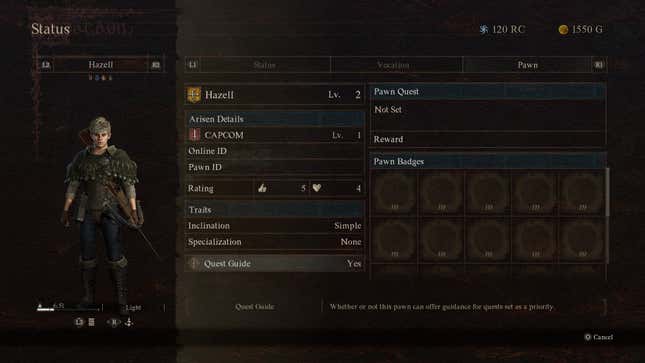
Some pawns will have passive perks that others won’t, so always be looking at their build before you recruit them. If you can find one with the Quest Guide perk, it will be a great boon for getting around Dragon’s Dogma 2’s world. These pawns will guide you directly to a quest objective area, which means you won’t have to worry about getting lost as often in the big open world.
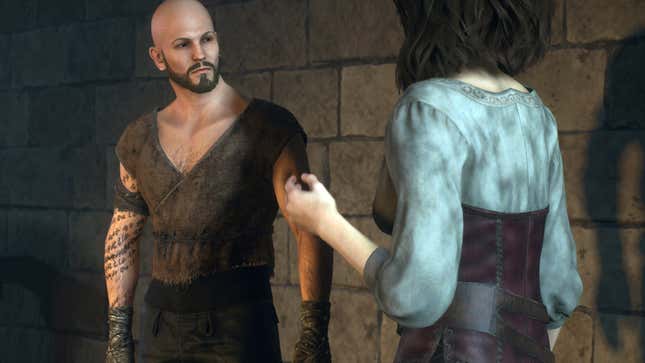
Early on, you’ll run into quests that require you to turn in items you won’t find in the world. You acquire these by combining items, but sometimes the quest description doesn’t make that clear. I spent several minutes in an early quest trying to find an item that could only be made by combining ingredients, but didn’t realize that until my aforementioned quest guide pawn kept leading me to the same area where there were no items to gather. So if you feel like you’re missing something in an item-gathering quest, open your inventory, pick relevant items and use the Combine option to see if you have the right materials to finish a quest.

As you cycle through pawns, you’ll have to send them back to their owners when you no longer require their services. When you do this, you can send an item with them to basically thank them for helping you out. There’s no drawback to keeping all your stuff for yourself, so just enjoy the free labor. You know, if your conscience can take it.
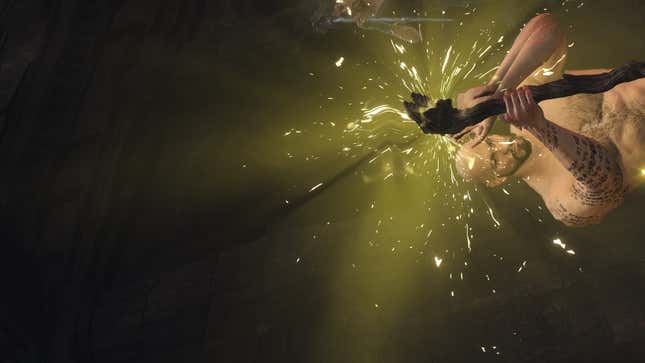
In the early hours, it’s very dangerous to leave a town or village during nighttime. Some real nasty enemies come out at night, and if you’re just starting out, you’ll likely find yourself overwhelmed by how vicious some of these little shits can get. Your best bet is to rest at night and head out during the day, lest you and your pawns face enemies who can hit with the force of an oncoming car.

If you’re on a quest and see a lake, you might be tempted to go for a swim. But friends, stay the hell out of the water. A cutscene in the first hour of Dragon’s Dogma 2 will illustrate this to you, but a force called The Brine, which looks like bloody tentacles, appears in bodies of water if a person enters it, and you will have only a precious few seconds to get out before you’re dragged into the depths. So do yourself a favor: stick to dry land.

Each pawn you meet has different personality traits that you’ll pick during the character creation screen. Some might be stoic, others might be adventurous. This will determine how different pawns interact with each other during your journey. Not only is it fun to hear these diametrically opposed characters clash (although some of the dialogue can get repetitive), but they will also sometimes talk about the Dragon’s Dogma universe and drop hints about what to do next. So don’t tune them out. You might miss something important.
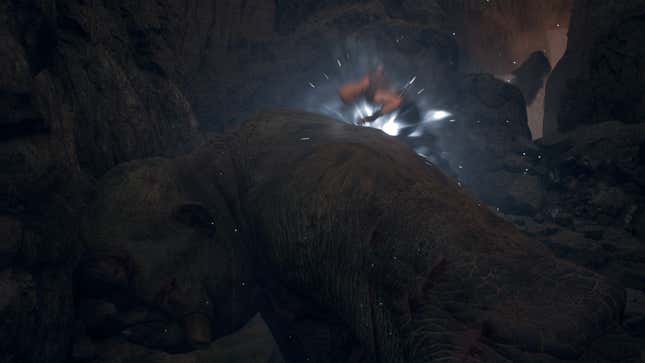
I play as a mage in Dragon’s Dogma 2. By design, my character is meant to fight from long range. However, every character has the ability to climb onto larger enemies like dragons and cyclopes. This works even for ranged attackers because it makes you less susceptible to enemy attacks (you are climbing on their back, after all), and lets you repeatedly strike them at the same time. If you feel like you’re not doing much or that enemies are beating your ass on the ground, try a different angle: on the back of their neck. But keep an eye on your stamina. You can’t hold on to a raging dragon forever.

As you take damage, you’ll only be able to heal yourself with items and spells up to a certain threshold of your health. The only way to refill your entire health bar is by resting at an inn in one of the towns or by making a camp at one of the designated campfire locations you’ll find in the world. You’ll need a camping kit to set one of these up. Any of these you get will do, but some are geared toward different environments and will give you different perks or advantages by using them in the appropriate area. But whatever you do, if you find your health lowered to an unusable level, head back to a safe place or set up camp.

Fast travel in Dragon’s Dogma 2 isn’t free. You’ll have to either use Ferrystones you find in the world, or jump on an oxcart. The latter will let you sit in the back of a cart and either move the camera around and listen to the sights and sounds of the world, or you can sleep until you reach your destination. However, your oxcart can get attacked on the way, so be ready for a fight if you’re going to risk catching 40 winks.

RC is a secondary currency in Dragon’s Dogma 2. This is primarily used to hire different pawns, but it’s not exclusively for that. Throughout your journey, you’ll meet merchants who only take RC instead of regular money. In exchange, they usually have rare items you won’t find at the average shop. So keep that in mind if you’re hiring pawns and find one who’s particularly expensive.

Dragon’s Dogma 2 does let you change your appearance somewhat. If you realize you hate your character’s hairstyle or beard, you can visit one of the barber shops you’ll find throughout the world, but do keep in mind that they are pretty pricey. So try to get it right the first time, yeah?

Your pawns are more than just swords and staves to take into battle. They’re also living, breathing backpacks. Having too much garbage in your inventory will overencumber your Arisen and reduce your movement speed. What good is having a bunch of loyal followers running around with you if they don’t hold your shit for you?
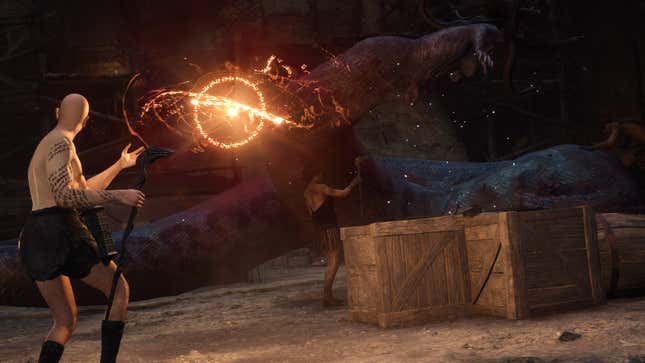
Dragon’s Dogma 2 can be a bit taxing and demanding. Sometimes when I feel like I’m hitting a wall because of a difficult boss fight or a really long trip across the map for a quest, I’ll just put the game down for a bit. After I’ve had a moment to touch grass, I’ll come back and feel refreshed and ready to go again. This is the kind of game that can burn you out if you don’t walk away sometimes. So go at your own pace.
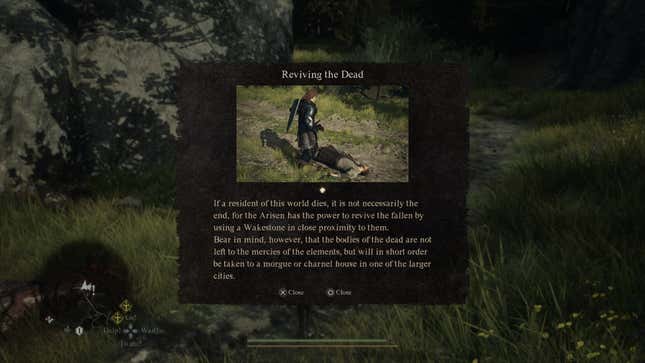
Sometimes fights get messy and NPCs you liked die. Well, if you’ve got a Wakestone, this is a non-issue. This item will pluck a character from the afterlife and put them right back in their body like nothing happened. However, in Dragon’s Dogma 2, you only have a limited window to bring someone back to life. Dead NPCs will end up at a morgue and go away forever if you don’t revive them in time. So if someone you’ve grown attached to kicks the bucket, find a Wakestone and bring them back.

Fashion is one of the most important things in an RPG for me. Unfortunately, most mage outfits in Dragon’s Dogma 2 suck, so when I found a pawn who had a cute top I wanted to put on, I was met with a sad notification that pawn equipment you take will be returned to their owner after you dismiss them. So if you see something on your followers that you’d rather wear yourself, just track down their player online and ask where they got that outfit.
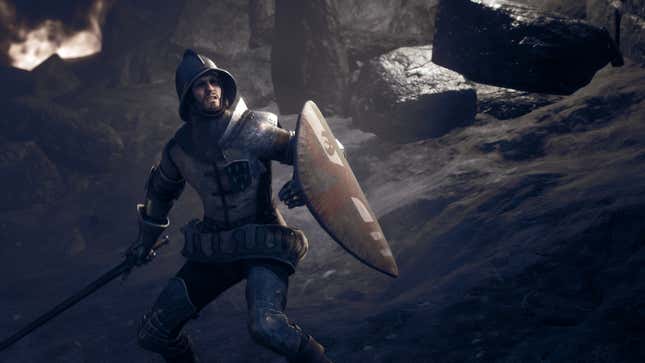
One annoying thing in Dragon’s Dogma 2 is how the inventory system complicates healing. As a mage, I was able to use healing spells to top off my teammates, but if you want to use healing items, it’s a little needlessly convoluted. You can’t heal pawns from the inventory menu; you have to transfer the item to the pawn’s inventory and they will heal themselves. Once you get the item in their bag, they’ll use it on themselves immediately if they hit a low HP threshold. But as far as being able to quickly heal your pawns, you’re out of luck if you don’t have an ability that can do it manually.

Sometimes picking your class in an RPG can feel like making a big commitment. In theory, you’ll stick with this for dozens of hours. What if you don’t like feeling uninvolved as a mage or don’t have the reflexes to handle close-quarters combat? Well, you can change your vocation at any point in your journey in Dragon’s Dogma 2 by going to the Vocation Guild in some cities, often in or near the local inn. It’s entirely free, too. So there’s no reason not to test something new out if you’re not feeling your current vocation.
For more on Dragon’s Dogma 2, check out Kotaku’s review.
Order Dragon’s Dogma 2: Amazon | Best Buy | Humble Bundle
.
